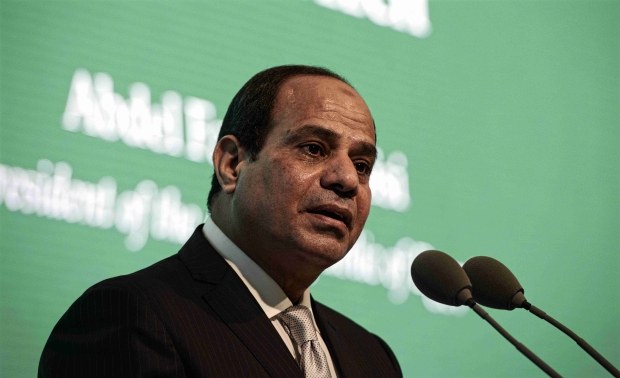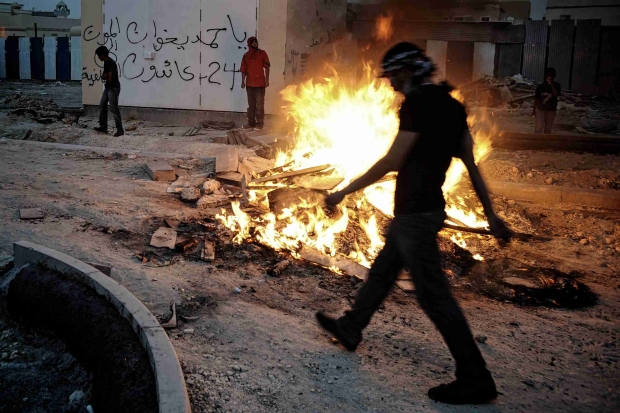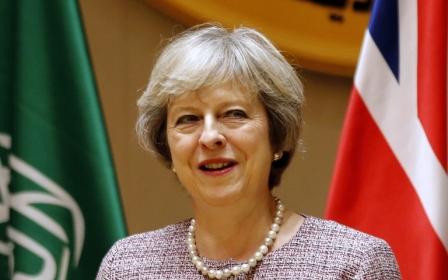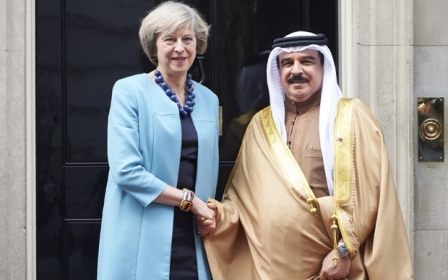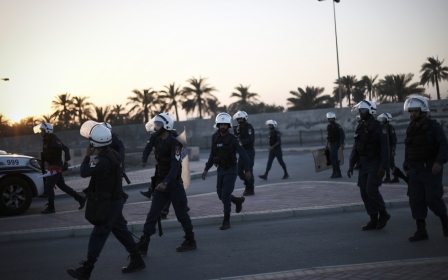Bahrain and the IISS: The questions that need to be answered
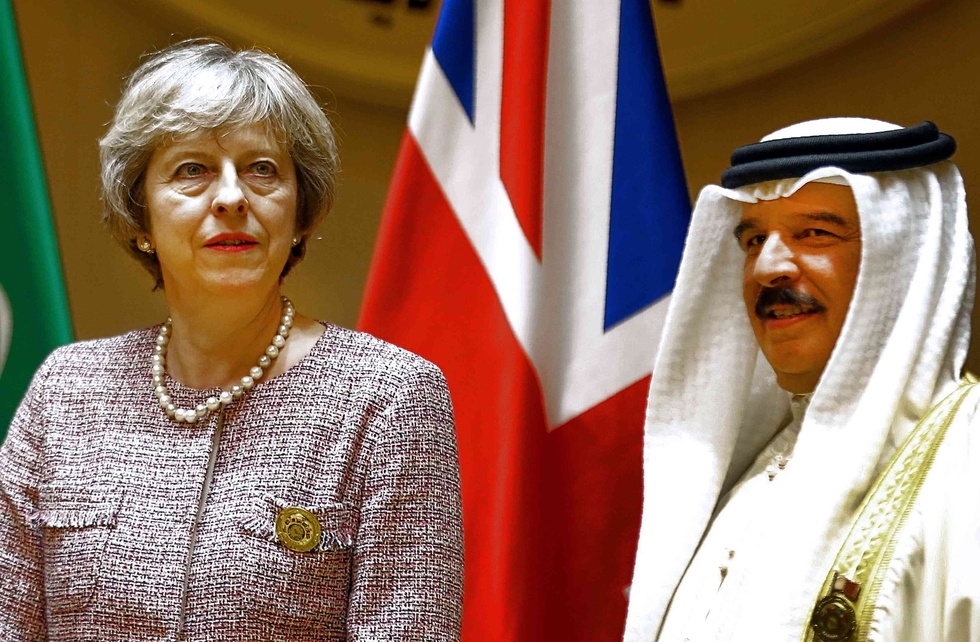
We are accustomed to speakers of a high calibre appearing at the Manama Dialogue in Bahrain, which is organised by the British think tank the International Institute for Strategic Studies.
The time last year, Field Marshal Abdel Fattah al-Sisi, the president of Egypt, took centre stage at the conference. This week, British Foreign Secretary Boris Johnson, fresh from his disagreement with Prime Minister Theresa May about Saudi Arabia, delivers the address.
The Manama Dialogue has established itself as an annual meeting place in the Middle East, where diplomats, businessmen and potentates linger to discuss their strategic interests.
IISS also asserts that it "owes no allegiance to any government, or to any political or other organisation". Nobody I have spoken to disputes that IISS produces first-class research.
But is it quite as independent as it claims?
What we don't know about the IISS
An investigation published earlier this week by Rob Evans, the formidable Guardian investigative journalist, casts an element of doubt on this claim. Evans, who worked in partnership with the pro-democracy organisation Bahrain Watch, has seen leaked documents which show that IISS has "secretly received £25m from the Bahraini royal family" which equates to $31.5m. This, said the Guardian, is one quarter of IISS's total income.
Bahrain Watch is emphatic that this scale of funding creates a conflict of interest
Bahrain Watch is emphatic that this scale of funding creates a conflict of interest. It states that "any organisation should be concerned about receiving donations of such a large sum from a single donor".
For the past few weeks, Middle East Eye has been carrying out its own investigation into IISS finances, independently of The Guardian and Bahrain Watch. We believe that IISS's financial dependence on Bahrain may actually be significantly greater than The Guardian suggested.
Let's have a look at the latest available set of IISS accounts, for the year to 30 September 2015. Total IISS income during this period was £16,869,000. Of that amount, some £3,548,000 - approximately 21 percent - related to the Manama Dialogue taking place this weekend, as well as "regional security seminars".
This sum was, according to The Guardian, provided by the Bahraini royal family. However, Middle East Eye has been told that the Manama Dialogue cash does not account for all the money IISS has received from Bahrain. Rather, we have been pointed towards a mysterious £2,168,000 of voluntary "donations" recorded for 2015.
The IISS accounts break down much of the think tank's income into very small and precise amounts: for example, a payment of £8,000 from the US Navy towards a study of "Iran's evolving Ballistic Missile Doctrine".
Another mysterious item in the IISS accounts concerns "unrestricted research activity" of £1,484,000. Who does this come from? Once again, the accounts (so precise on other, much smaller matters) do not explain. Middle East Eye has been told that the bulk of that money has its origins in Bahrain.
If our sources are correct, then Bahrain does not merely account for approximately 20 percent of the IISS annual income accounted for by the Manama Dialogue. Instead, in 2015, it was very much closer to nearer £7 million – or not far off half the total income for IISS during that period.
The need for transparency
On Wednesday, Middle East Eye sent a set of questions to IISS.
We asked for confirmation that The Guardian was correct that the Bahrain royal family paid the think tank £3,458,000.
We asked the IISS to confirm that the "voluntary income donation" figure of £2,168,000 is a single donation in dinars from the Ministry of Foreign Affairs.
Despite repeated requests, an IISS press spokesman would not answer these questions. Instead he sent us a press statement which insisted that its accounts were filed in full compliance with UK statutory and charity requirements.
It also pointed out that all IISS contracts "contain a clause asserting the Institute’s absolute intellectual and operational independence as an international organisation that does not participate in any manner of advocacy".
The IISS also insists that the Manama Dialogue agreement "gives the IISS full freedom to develop the agenda and invite participants in line with priorities the institute judges to be important to encourage strong debate on the issues faced by the region and to facilitate important diplomatic contacts".
The Manama Dialogue has drawn criticism from Bahraini human rights activists for its one-sided portrayal of Bahrain's politics
It is important to stress that Bahrain is by no means the only - or even the majority - funder of the IISS. Other host-nation and private-sector support comes from BAE Systems Plc, Abraaj Capital, the UAE Minister of State for International Cooperation Office (MOS) and the Ministry of Defence, Saudi Arabia.
However, the Manama Dialogue has drawn criticism from Bahraini human rights activists for its one-sided portrayal of Bahrain's politics, its narrow focus on the concerns of the Gulf monarchies and its silencing of opposition voices.
Two more public questions we would like the International Institute for Strategic Studies to answer.
First, can you confirm that the voluntary income figure of £2,168,000 as a single donation comes from Bahrain?
Second, is it true that much of the £1.5 million of "unrestricted research funding" comes from the same source?
We believe these questions are important because IISS, in common with other think tanks, needs to be transparent about the governments and other organisations which support it.
Manama Dialogue gives air of respectability
The kingdom of Bahrain is not far short of being a dictatorship. It does not encourage freedom of speech and persecutes its own citizens, in particular the majority Shia population.
Before 2011, the Crown Prince attempted to chart a liberal course for his country, moving towards democracy and leaving room for Shia, as well as Sunni, interests.
The kingdom of Bahrain does not encourage freedom of speech and persecutes its own citizens, in particular the majority Shia population
But all of that came to an end with the Arab Spring and the Pearl Uprising, which reached Bahrain in February 2011. There was a regime clampdown and ever since then the king has governed, with the aid of neighbouring Saudi Arabia, along increasingly sectarian lines.
As political scientist Kristin Smith Diwan writes: "The aftermath of the Pearl Uprising witnessed a punitive campaign notable for its expansive reach and its engagement with the broader populace. The ascendancy of hardliners, under the extreme conditions of the political crisis, created a permissive environment for anti-Shia rhetoric and Sunni political mobilisation."
Many would argue that if the IISS was being consistent with its professed support for peaceful dialogue, then it would seek to help mend the numerous sectarian divisions in Bahrain.
The concern about the Manama Dialogue, and its surrounding activities, is that they convey an air of respectability to an increasingly authoritarian and illegitimate regime.
That is why we believe it is essential that the IISS should clarify its financial relationship with Bahrain.
- Peter Oborne was named freelancer of the year 2016 by the Online Media Awards for an article he wrote for Middle East Eye. He was British Press Awards Columnist of the Year 2013. He resigned as chief political columnist of the Daily Telegraph in 2015.
The views expressed in this article belong to the author and do not necessarily reflect the editorial policy of Middle East Eye.
Photo: UK Prime Minister Theresa May and the King of Bahrain, Hamad bin Isa al-Khalifa, in Manama, Bahrain, December 2016 (AFP)
New MEE newsletter: Jerusalem Dispatch
Sign up to get the latest insights and analysis on Israel-Palestine, alongside Turkey Unpacked and other MEE newsletters
Middle East Eye delivers independent and unrivalled coverage and analysis of the Middle East, North Africa and beyond. To learn more about republishing this content and the associated fees, please fill out this form. More about MEE can be found here.



